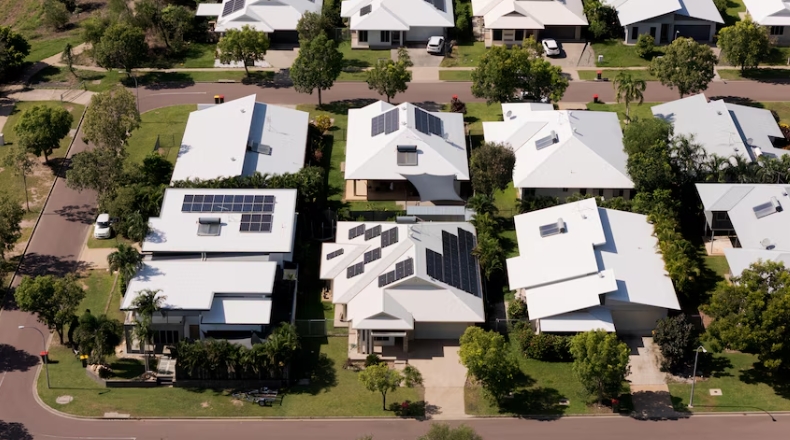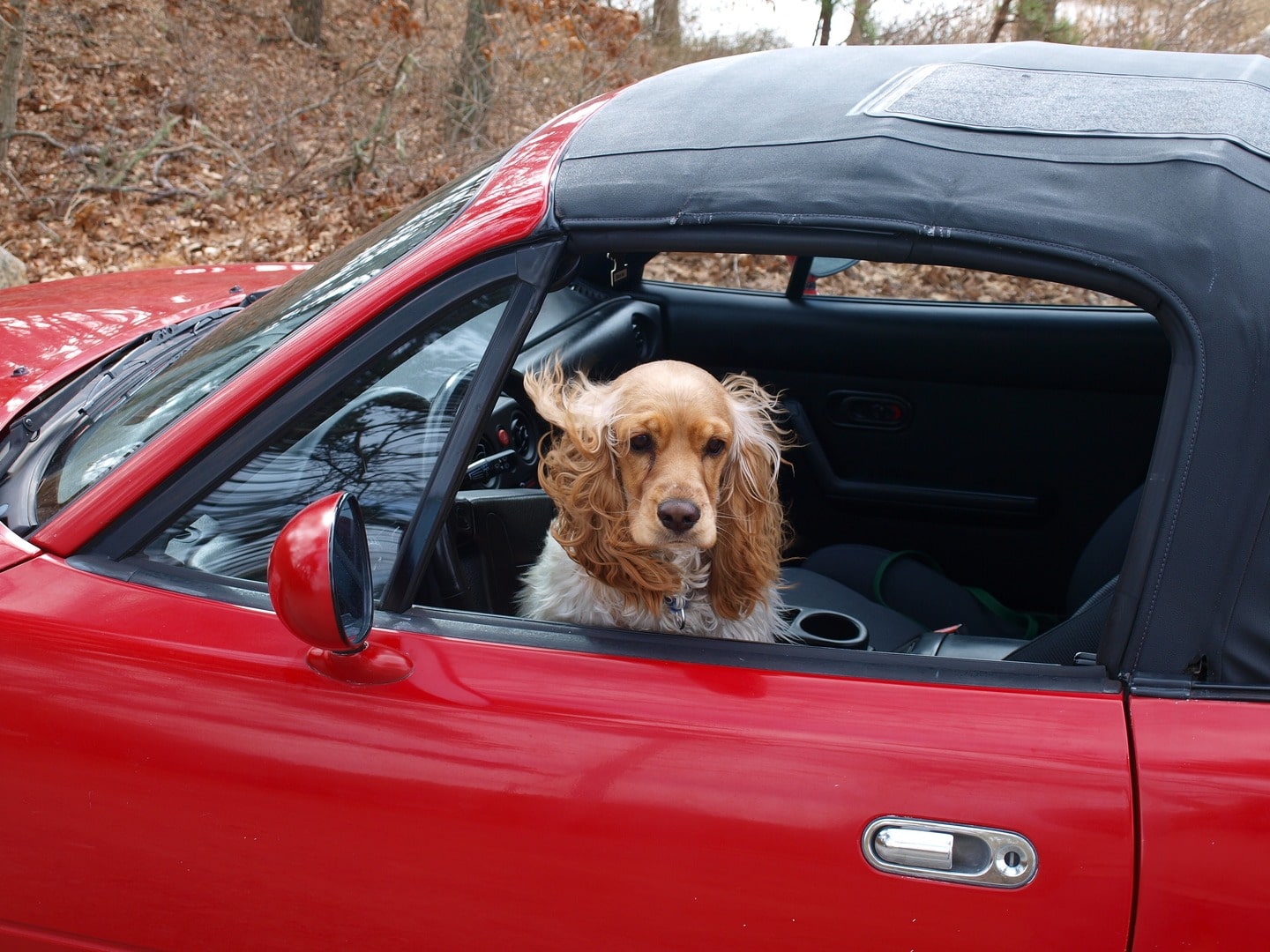After Amanda and Mark Elder moved to Darwin in December, they spent the next two months living in a caravan park as they tried to find an affordable rental.
Ms Elder works casually as a nurse in Darwin city, while she also cares for her husband who is on the disability support pension and is recovering from stage 4 brain cancer.
The couple said it was almost impossible to find a rental in Darwin within their budget.
“We had been applying for houses non-stop around Darwin for places that were within our price range,” Ms Elder said.
Amanda and Mark Elder spent two months living in a caravan park before they could find a rental in Darwin. (ABC News: Michael Donnelly)
“Depending on your income [rental agents calculate] 25 per cent of your income towards the rent, and our [income] wasn’t capable of coming anywhere near that for the prices of rentals in Darwin.”
Despite being Australia’s smallest capital city, Darwin has been ranked the country’s second-most-expensive place to rent a house, along with Canberra.
A new Domain report on the last March quarter found the median asking price for house rentals in Darwin sat at $700 per week.
The report also reveals Darwin’s median asking house rent increased 7.7 per cent in the past year — the highest annual rise across all capital cities.
Darwin’s asking rents for units are among the more affordable in Australia at $560 per week, which is cheaper than all other capital cities besides Adelaide and Hobart.
However, the market for both homes and units in Darwin is still one of the most competitive with a vacancy rate of 0.6 per cent — below the national average of 0.8 per cent.
Why is renting a home in Darwin so expensive?
Domain’s research and economics chief Dr Nicola Powell said Darwin’s expensive rental housing market was largely due to a “mismatch in demand and supply”.
“When you have a vacancy rate below 2 per cent it shows that it is a landlord’s market and we’ve got to remember that Darwin’s vacancy rate is sitting at 0.6 per cent,” Dr Powell said.
Dr Powell said the capital city’s “transient nature” and the fact it is more affordable to purchase a property in Darwin, compared to other capital cities, puts more pressure on the rental market.
Dr Nicola Powell says a “mismatch” in supply and demand has contributed to Darwin’s high house rentals. (ABC News: Darren Reichard)
She said that Darwin had seen an “increase in investment activity over the recent quarter”, which if it continues, should eventually help boost the city’s rental stock.
NT Shelter chief executive Annie Taylor said the increase in rental prices was a concerning trend not only for the “almost 50 per cent” of Territorians who rent, but the thousands of people waiting for public housing.
“You look at the waitlists for public housing across the NT and they can be anywhere from about four to 10 years,”
Ms Taylor said.
“There’s over 5,000 families or applicants on those waitlists at the moment.”
Annie Taylor says the Northern Territory government needs to invest more in public housing. (ABC News: Pete Garnish)
Ms Taylor said the market would only get more difficult in the near future, with the National Rental Affordability Scheme — which subsidises rent for low-income households — coming to an end in June 2026.
“We have a homelessness rate which is 12 times the national average,” she said.
“What we really don’t want to see is people who are already housed becoming homeless because they cannot find affordable housing in the Northern Territory.”
Amanda and Mark are now living in a rental house in Noonamah, in Darwin’s rural area. (ABC News: Michael Donnelly)
Ms Elder said had it not been for finding a rental on Facebook in Darwin’s rural area, 45 kilometres south-east of the city, they too would have faced homelessness.
“If we didn’t get this place, I think we would been living on the streets or living in my car,” Ms Elder said.
“Rentals are so hard and I’m seeing more and more people living on the streets. It’s just not fair.”



